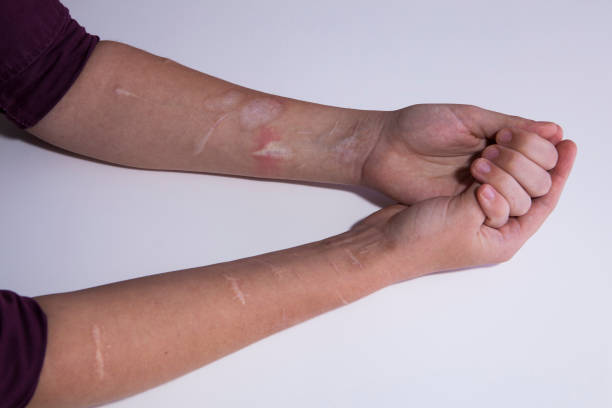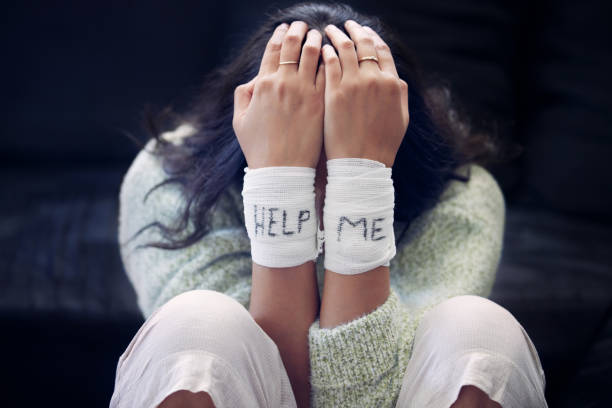Self-Injury Treatment in Las Vegas, NV
Self-injury, also known as self-harm, refers to the deliberate act of inflicting harm on one’s own body. While the behavior is often linked to emotional distress, trauma, or mental health struggles, it is crucial to understand that self-injury is not a sign of weakness but a sign of someone in deep pain. Many individuals who engage in self-injury do so as a way to cope with overwhelming emotions, like anger, frustration, or sorrow, often from unresolved past trauma, abuse, or other mental health challenges.
While self-injury is not typically an attempt to end one’s life, it can lead to severe physical and emotional consequences. It’s essential to seek help. Professional Self-Injury Treatment in Las Vegas offers compassionate care and effective strategies to help individuals develop healthier coping mechanisms, heal from underlying pain, and work toward long-term emotional stability.
Common Forms of Self-Injury
- Cutting: Using sharp objects such as knives or razors to cut the skin.
- Burning: Applying hot objects or substances to the skin to cause burns.
- Hitting or Punching: Inflicting blunt force trauma to the body.
- Breaking Bones: Purposefully causing fractures.
- Piercing the Skin: Using sharp objects to puncture the skin.
- Pulling Out Hair: Trichotillomania (compulsive hair-pulling) is a common form of self-injury.
- Banging the Head: Repeatedly banging the head against walls or other surfaces

Signs and Symptoms of Self-injury
Often hidden, the signs of self-injury can be subtle. Loved ones and caregivers should be vigilant for the following signs:
- Scars: Noticeable marks or scars on the skin.
- Fresh Cuts or Scratches: Recent injuries that are unexplained.
- Bruises or Broken Bones: Unexplained injuries that appear frequently.
- Wearing Long Sleeves/Pants in Hot Weather: An attempt to hide self-inflicted wounds.
- Behavioral and Emotional Instability: Mood swings, depression, or extreme emotional distress.
- Claiming Frequent Accidents: Often used as an excuse for injuries that don’t have clear explanations.
Causes of Self-injury
There is no single cause for self-injury. However, certain factors may increase the likelihood of someone engaging in self-harm, including:
- Childhood Abuse: Physical or sexual abuse during childhood is a significant risk factor.
- Mental Health Disorders: Conditions like depression, anxiety, eating disorders, and personality disorders are common among those who self-harm.
- Drug or Alcohol Abuse: Substance abuse can lead to or worsen self-injury behavior.
- Peer Influence: Friends or close acquaintances who self-injure may influence others to adopt the same behavior.
- Young Age: Adolescents and young adults are more likely to engage in self-injury, often as a response to emotional turmoil.

Risks of Self-injury
Beyond emotional and psychological pain, self-injury can lead to severe physical complications, such as:
- Infection: Open wounds can become infected if not treated.
- Permanent Scarring: Self-inflicted injuries can leave lasting physical marks.
- Severe Blood Loss: Cutting deep into blood vessels can cause dangerous bleeding.
- Disfigurement: Permanent alterations to appearance due to injuries.
- Fatal Injury: The risk of accidental death can arise from severe self-inflicted injuries.
- Increased Substance Abuse: Some individuals may turn to drugs or alcohol to cope with emotional pain.
Although self-injury is not typically suicidal, it can increase the risk of suicide over time due to the growing emotional pain and damage.
Self-Injury Treatment in Las Vegas
Treatment for self-injury requires a compassionate and personalized approach. A comprehensive assessment by a mental health professional is crucial to understand the underlying causes and develop an appropriate treatment plan. Options for treating self-injury may include:
- Psychotherapy: Cognitive Behavioral Therapy (CBT) and Dialectical Behavior Therapy (DBT) are commonly used to help individuals recognize and manage harmful behaviors. Therapy also focuses on addressing past trauma, improving emotional regulation, and building healthier coping mechanisms.
- Medication: Antidepressants or anti-anxiety medications may be prescribed if there are co-occurring mental health disorders like depression, anxiety, or PTSD.
- Psychiatric Hospitalization: In cases of severe self-injury or when there’s a risk of suicide, hospitalization may be necessary to provide around-the-clock care and safety.
- Support Groups: Joining a support group with individuals who have experienced similar struggles can foster a sense of community, reduce feelings of isolation, and provide valuable coping strategies.
Recovery from self-injury is possible with the right treatment, support, and care. If you or a loved one is struggling with self-injury, don’t hesitate to reach out to mental health professionals in Las Vegas who can guide you toward healing.

Start Your Recovery Journey Today!

Frequently Asked Questions:
What types of therapies are effective for treating self-injury?
Can medication help someone who self-injures?
What should I do if I suspect someone is self-harming?
Are there support groups for people who self-injure in Las Vegas?
Featured Services
Medication
Management
Psychiatric medications are invaluable in achieving recovery from mental illness and safe treatment of symptoms. Our practice offers comprehensive medication management delivered by board certified Psychiatric Nurse Practitioners. Our clinicians utilize a holistic approach that incorporates in depth knowledge of how pre-existing medical conditions can influence and trigger psychiatric symptoms. The decision to begin medication management is a combined effort between the Provider and the individual patient.
Therapist
Referrals
Our board certified Nurse Practitioners work with a select group of well experienced Licensed Therapists in the Las Vegas area. Depending on the patient’s symptoms and goals, the patient and the Provider will determine if therapy could offer solutions to the current situation. Therapy can include individual, group or family for adults and children. Finding the right Licensed Therapist for your individual needs is very important. The Therapy referrals available at Mighty Mental Health will ensure that every available tool is being utilized to help reach each patient’s goal.
ADHD Testing and
Treatment
Our office offers both in office and online ADHD Testing for both children and adults. Our board certified Nurse Practitioners are trained to administer the tests and discuss the results with the patients and family. Testing is a great tool for Providers to use to help determine the best treatment plan for all patients. Our office uses the state of the art software created by QbCheck to help diagnose and track our ADHD patients.

Request An Appointment
* All indicated fields must be completed.
Please include non-medical questions and correspondence only.
-
2685 South Rainbow Blvd
Suite 206
Las Vegas, NV 89146
- 702-479-1600
- Fax 702-479-1993
- OFFICE HOURS
- By Appointment Only
- Mon: 8:30am - 6:00pm
- Tues: 8:30am - 6:00pm
- Wed: 8:30am - 6:00pm
- Thurs: 8:30am - 6:00pm
- Fri: 8:30am - 6:00pm
- Sat: 10:00am - 3:00pm
- Sun: Closed
How useful was this post?
Click on a star to rate it!
Average rating 4.3 / 5. Vote count: 3
No votes so far! Be the first to rate this post.
We are sorry that this post was not useful for you!
Let us improve this post!
Tell us how we can improve this post?